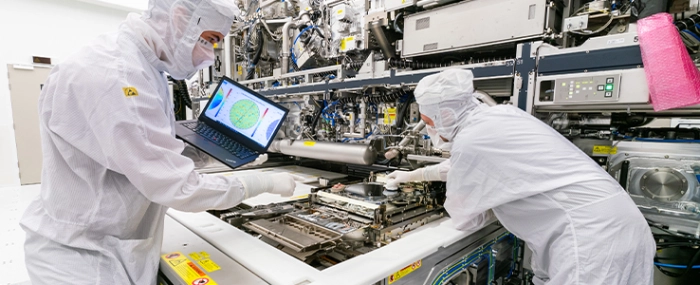
Global semiconductor equipment billings surged to $117B in 2024
Worldwide sales of semiconductor manufacturing equipment increased 10% to USD 117.1 billion in 2024 from USD 106.3 billion in 2023, SEMI reports reported today.
In 2024, the global front-end semiconductor equipment market experienced notable growth, with sales of wafer processing equipment increasing by 9% and other front-end segments rising by 5%. This growth was largely fueled by heightened investments in expanding capacity for both leading-edge and mature logic, advanced packaging, and high-bandwidth memory (HBM), alongside a significant rise in investments from China.
The back-end equipment segment, after two consecutive years of decline, saw a robust recovery in 2024, driven by the increasing complexity and demands of AI and HBM manufacturing. Assembly and packaging equipment sales increased by 25%, while test equipment billings rose by 20% year-over-year, reflecting the industry's push toward supporting advanced technologies.
"The global semiconductor equipment market surged by 10% in 2024, rebounding from a slight dip in 2023 to reach an all-time high of $117 billion in annual sales," said Ajit Manocha, SEMI President and CEO, in a press release. "Industry spending on chipmaking equipment in 2024 reflects a dynamic landscape shaped by regional investment trends, technological advancements in logic and memory, and the rising demand for chips related to AI-driven applications."
Regionally, China, Korea, and Taiwan remained the top three markets for semiconductor equipment spending, collectively accounting for 74% of the global market. China solidified its position as the largest semiconductor equipment market, with investments surging 35% year-over-year to USD 49.6 billion, driven by aggressive capacity expansion and government-backed initiatives aimed at bolstering domestic chip production. Korea, the second-largest market, saw a modest 3% increase in equipment spending, reaching USD 20.5 billion, as memory markets stabilised and demand for high-bandwidth memory soared. In contrast, Taiwan experienced a 16% decline in equipment sales, falling to USD 16.6 billion, reflecting a slowdown in demand for new capacity.
Elsewhere, North America recorded a 14% rise in semiconductor equipment investments, reaching USD 13.7 billion, driven by increased focus on domestic manufacturing and advanced technology nodes. The Rest of the World saw a 15% increase, with billings at USD 4.2 billion, supported by emerging markets ramping up chip production. However, Europe faced a significant 25% decline in equipment spending, falling to USD 4.9 billion, due to weakened demand in the automotive and industrial sectors amid economic challenges. Japan also saw a slight 1% dip, with sales at USD 7.8 billion, as the region grappled with slower growth in key end markets.
| Region | 2024 | 2023 | YoY change (%) |
| Mainland China | $49.55 | $36.60 | 35% |
| Korea | $20.47 | $19.94 | 3% |
| Taiwan | $16.56 | $19.62 | -16% |
| North America | $13.69 | $12.05 | 14% |
| Japan | $7.83 | $7.93 | -1% |
| Europe | $4.85 | $6.46 | -25% |
| Rest of the World | $4.19 | $3.65 | 15% |
| Total | $117.14 | $106.25 | 10% |
(USD in billions)


